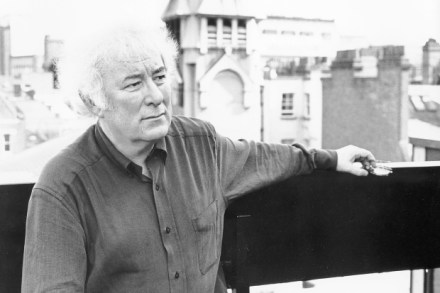Seamus Heaney: no shuffling or cutting — just turning over aces
The impersonator — Rory Bremner, Steve Coogan — speaks, in different voices, to a single primitive pleasure centre in his audience. Counterintuitively, we like the imposition of imposture. We connive at deceit, at replication, for the release of neurotransmitters, the flood of endorphins — the brandies of the brain. I once heard Peter Ustinov on a chat show replicate the sound of an electric bell being pressed. Pleasure on a different, even more vertiginous level. The audience was convulsed. Unless a poet can produce this ungainsayable instant delight in the reader, this drench of dopamine, the poetry is automatically of the second order. (We expect less of our novelists, though





















